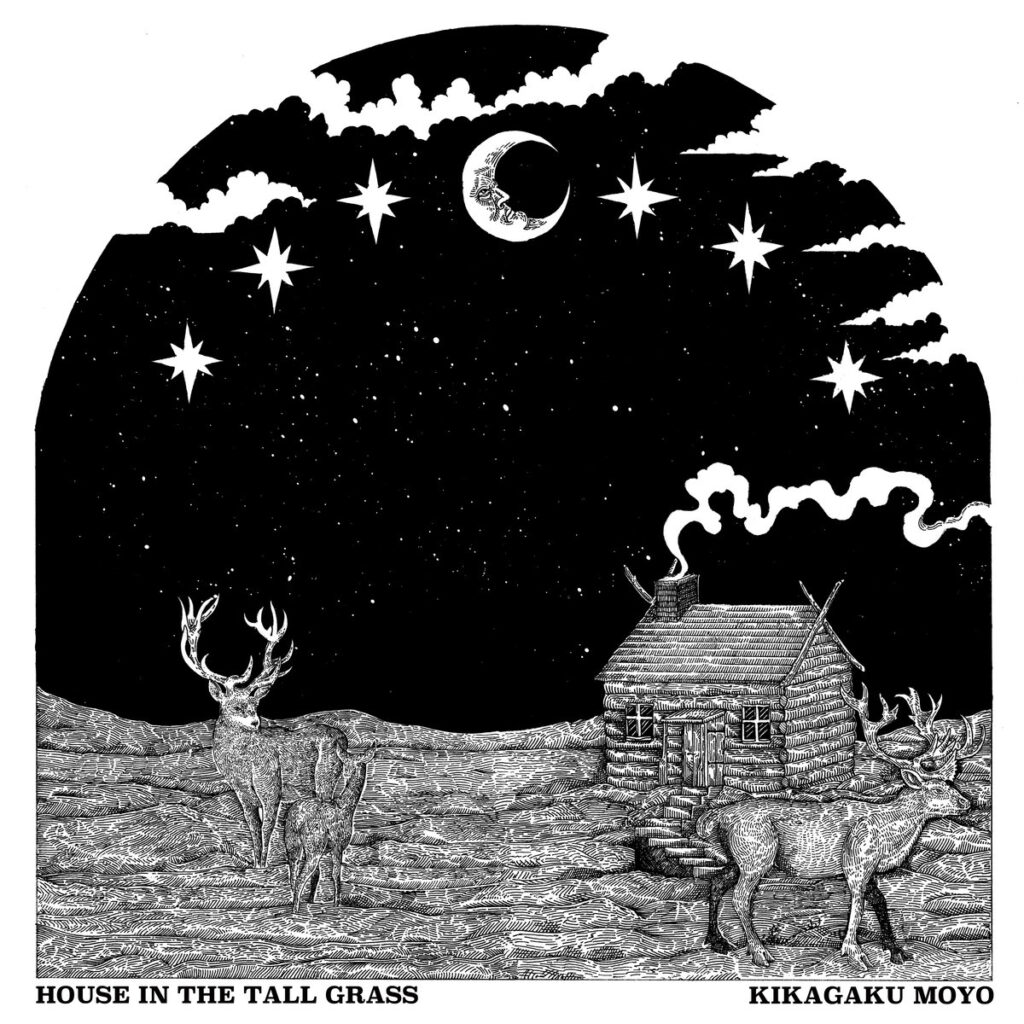With House In The Tall Grass, forest folk Kikagaku Moyo have returned with that most perverse, oxymoronic, and disappointing of things – a boring psych album. A non-ironic acknowledgement of one’s musical forebears can be a beautiful thing; just look at the idiosyncratic new forms teased from doom-metal’s corpse by the likes of Sunn O))) and Om. The problem comes when artists fail to recognise the elements of their chosen influence that have the potential to catalyse new modes of expression, and take the heritage as gospel. Regrettably, this is exactly what this Japanese psych-folk troupe have done on their new album.
There’s not a whole lot of artists around at the moment who are approaching psychedelia from a folk-based perspective. Gone are the days when artists like Joshua Burkett, Ben Chasny and Matt Valentine set about creating an underground network of likeminded souls with their doggedly experimental appraisal of roots music: today’s psych tends to focus on the heavier side of things. Which is exactly what makes Kikagaku Moyo such an intriguing prospect today. On better, earlier works such as their self-titled mini-album and 2014’s Mammatus Clouds EP, the group enlivened their classicist approach to sleepy psychedelic rock with rudimentary folk instrumentation and deep drone structures; an interesting alternative to bludgeoning modern psych strategies. Unfortunately on House In The Tall Grass the group immerse themselves in classicism whilst almost completely neglecting any attempt at experimentation, refusing to move beyond antiquated psych paradigms with a retrogressive pop style and slickened production.
Opening track ‘Green Sugar’ begins with a mass of heavy guitar shred and it feels like we’re in good territory. After the storm dies down, however, things quickly descend into a plodding, parody-esque take on sub-Tame Impala psych pop, replete with a kooky sitar line that recalls the worst of the bubblegum pop-raga albums of the late ‘60s. Next up ‘Kogarashi’ deals out a slice of slick, moonlit pop – a disappointing offering from a band who profess an appreciation for both Taj Mahal Travellers and black metal. The clichéd acid folk of ‘Old Snow, White Sun’ falls back on conventionalities, including the kind of plaintive, fey vocals that weren’t even cute when Donovan was doing them fifty years ago, and the less said about the slight instrumental titbits ‘Melted Crystal’ and ‘Dune’ the better.
Despite this crippling reliance on traditional psychedelic touchstones, there’s certainly a few thrills to be had on the album, and things do pick up somewhat toward the second half of the work. The drowsy ‘Silver Owl’ shifts into gear with a barnstorming stoner-doom finale, whilst the soft synths and crystalline bells of the instrumental ‘Fata Morgana’ mark an audacious move into the realms of New Age music. Guitarist Daoud Popal penetrates the stoned fug of ‘Trad’ with some gloriously freeform, Les Rallizes Dénudés-esque guitar scree, and the glacial psych-folk of ‘Cardigan Song’ could be considered charming if you’re feeling whimsical enough.
These are, however, small victories for an album that is marred by a complacent dependence on clichéd influences and a hesitance to embrace the spirit of experimentation that psychedelia in its truest form represents. In other words, this is music for bobbing along at a festival to, beer in hand. If you’re on anything stronger, mind, I’d highly recommend looking elsewhere.


